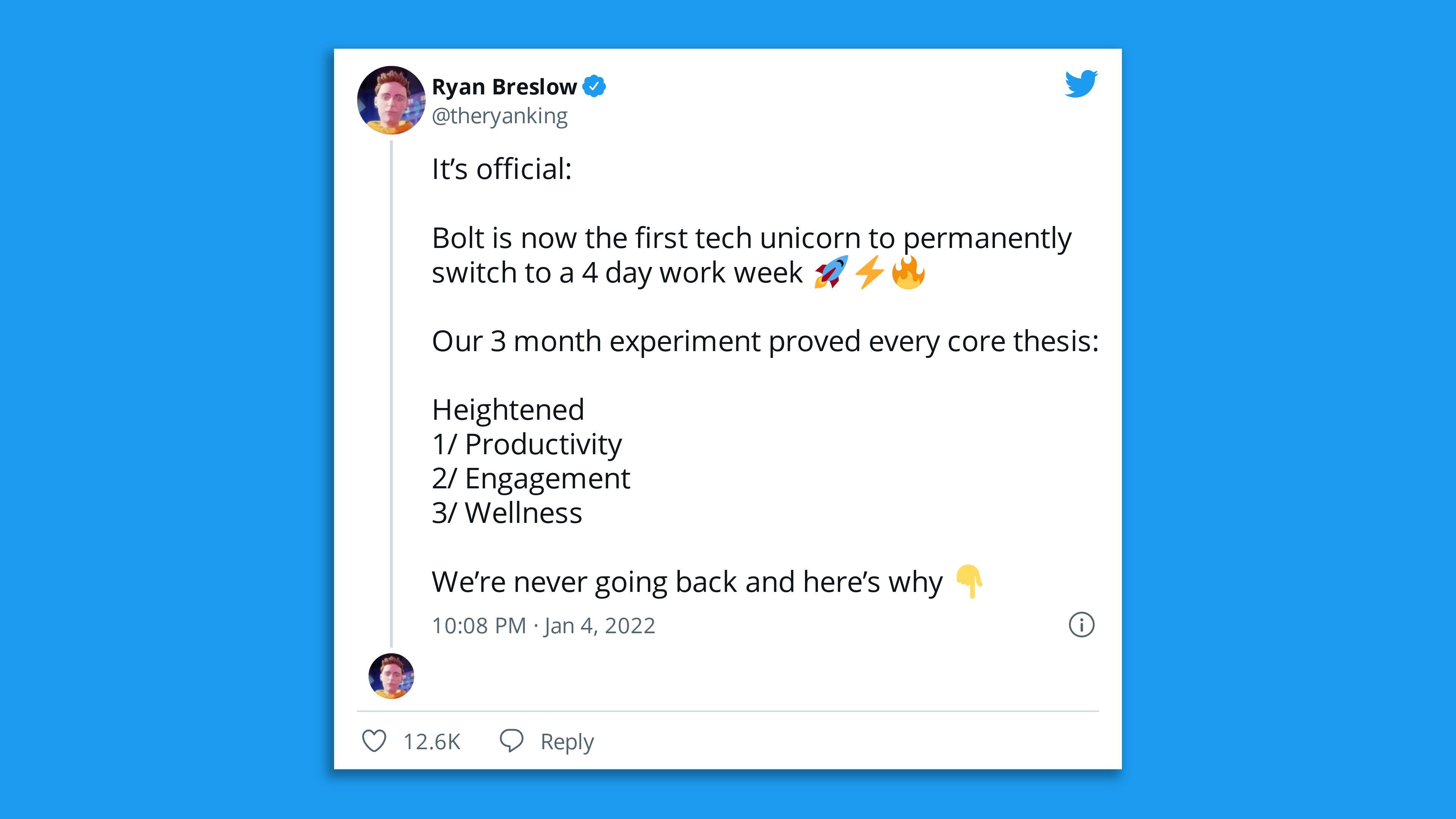The California Legislature is considering a bill that would reduce the workweek to four days for companies with more than 500 employees.
Though the legislation is a long shot, calls to shorten the workweek — a perennial fantasy for cube dwellers, factory workers, and others — have grown louder and more prevalent since the pandemic showed us what's possible in terms of alternative job arrangements.
- On the federal level, Rep. Mark Takano (D-Calif.) introduced the 32-Hour Workweek Act last July, joined by other House progressives.
- In the private sector, companies from Toshiba to Shake Shack, Kickstarter and Shopify have been given the four-day workweek ago. (Here's a list of companies trying it.)
- A nonprofit called 4 Day Week Global is trying to propagate the practice. "This year, 38 companies in the U.S. and Canada are taking part in the program, with most running from April 1 through September," per CNBC.
California's AB2932 "would change the definition of a workweek from the current 40 hours to 32 hours for companies with more than 500 employees, and require overtime pay for making employees work longer than four full days a week," the San Francisco Chronicle reports.
- Proponents say it will boost worker productivity, work/life balance, and mental and physical health.
- Detractors say it'll be a financial disaster, with companies having to fork up for more overtime and hire more people.
- Technically, companies could still make people report to work five days a week, but they would have to pay them extra after 32 hours on the clock.
The four-day workweek has been catching on, although there are clearly places and settings where it will never fly.
- Belgium just started a trial of a four-day workweek — with employees being given "the right to disconnect" by ignoring emails from their bosses, etc.
- Other nations with shorter-workweek policies include Iceland, Japan, Scotland, Spain, and the United Arab Emirates.
Private companies that have given it a whirl are finding it popular, perhaps not surprisingly.
- Bolt, a fintech startup, just adopted a four-day week permanently after a three-month trial and says job applications have shot up 30%.
- According to research by 4 Day Week Global: "63% of businesses found it easier to attract and retain talent with a 4 day work week."

"After a nearly two-year-long pandemic that forced millions of people to explore remote work options, it’s safe to say that we can’t — and shouldn’t — simply go back to normal, because normal wasn’t working," said Rep. Takano.
- California Assemblymember Cristina Garcia, who co-introduced the California bill, told the San Francisco Chronicle that the legislation would make it easier for women to rejoin the workforce after taking a hiatus to raise children.
The California Chamber of Commerce calls the bill a "job killer," and economists and others have lined up to call it a bad idea — one that would shift jobs to neighboring states like Nevada and Oregon.
- “This is terrifying,” Nicholas Bloom, a Stanford University professor who studies work trends, told the Chronicle.
- “If they introduce this, businesses will reduce employment through hiring freezes and layoffs and slash pay by canceling the next [five] years of pay increases."
While major legislation will be hard to pass, the practice is making selective inroads.

